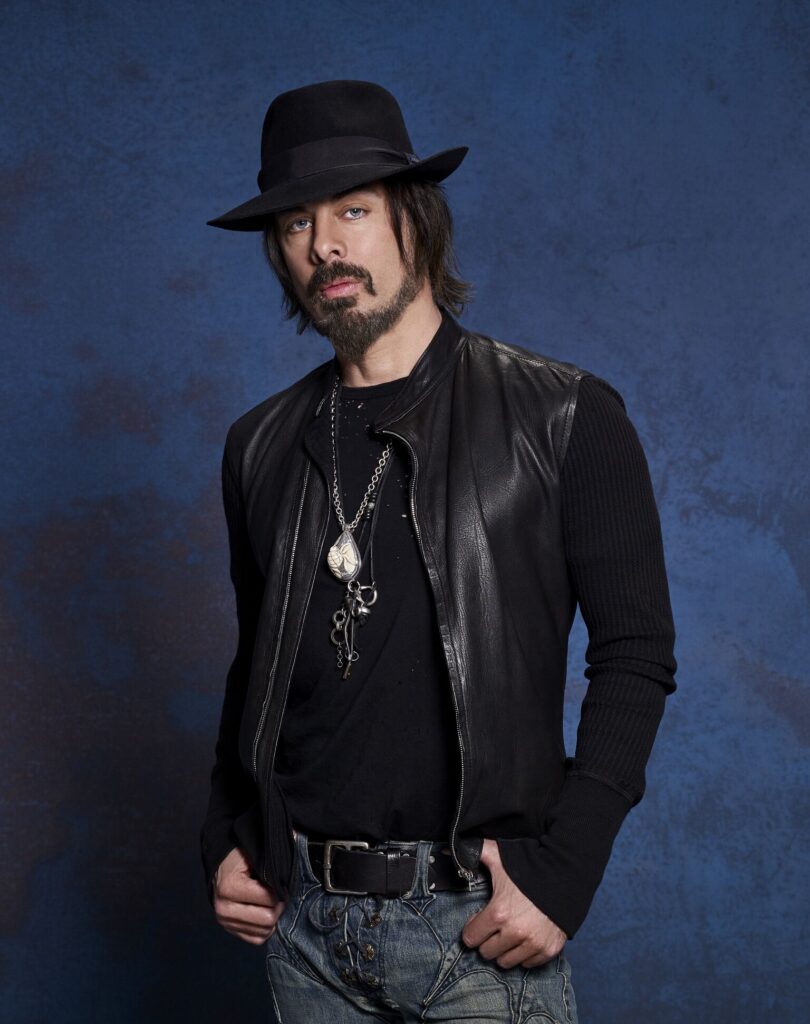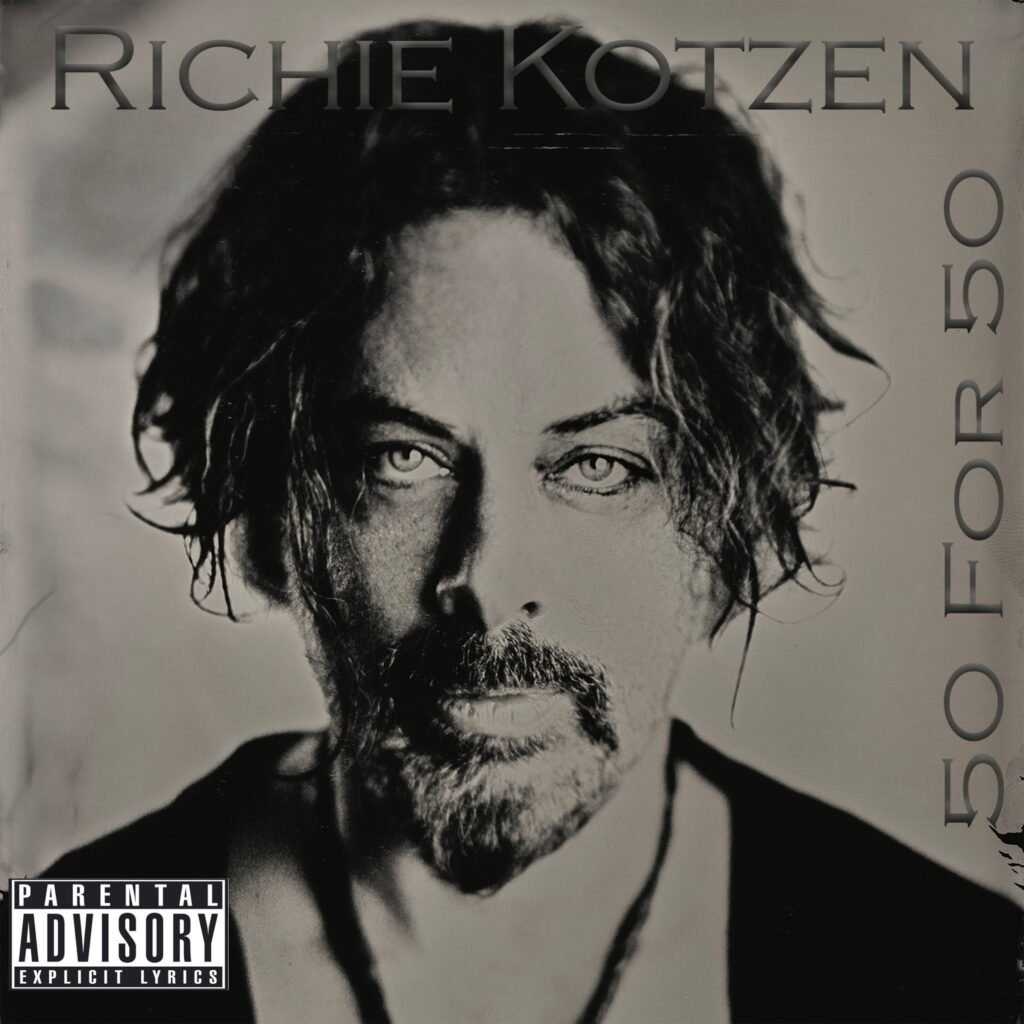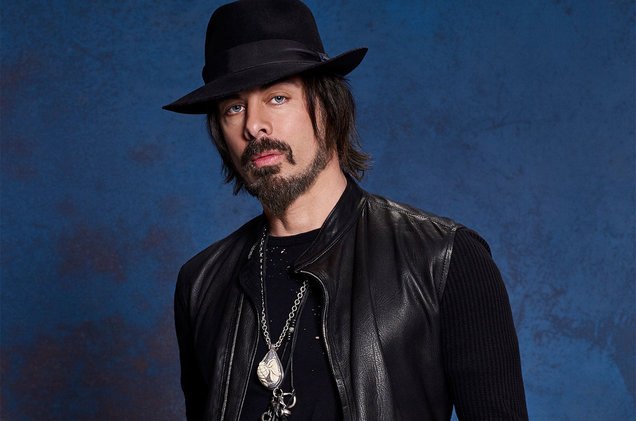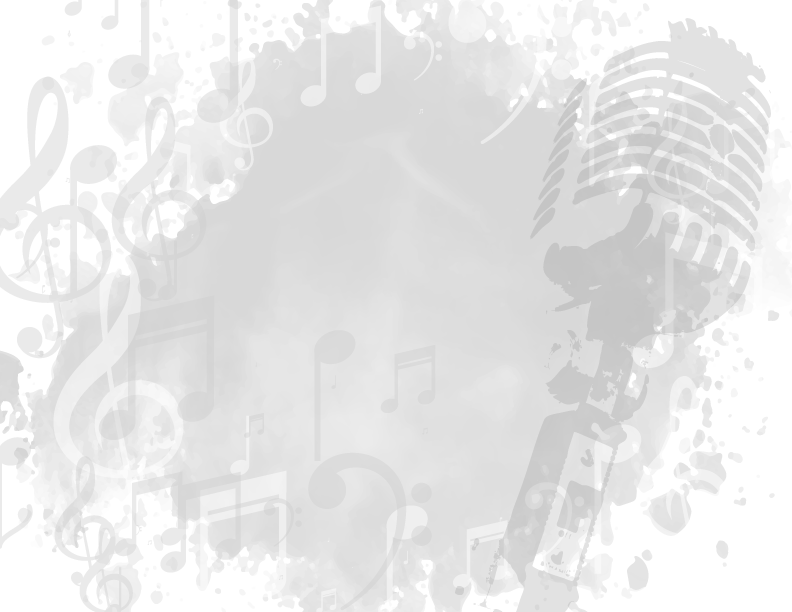A Perfect 50 For 50: A Conversation With Richie Kotzen
Turning 50 years of age is usually one of two things: a rocking celebration of having made it to an age that society has deemed a benchmark for reasons unknown, or, just another day on planet Earth.
For singer/songwriter Richie Kotzen, hitting half a century was a bit of both. The chameleon-like Kotzen, whose stellar playing chops allow him to transition from rock n’ roll, to hard rock, to R&B to jazz fusion, and back again an ease that most guitarists only dream of, is the real deal. His body of work stretches across three decades and literally dozens of albums. He’s a big deal. 
His birthdays? Not so much.
Kotzen turned 50 on Feb. 3, and in the context of moving from 49 to the big five-o, he admitted he was less than enthused.
“For me, it really was just another birthday,” he said in a recent interview with ListenIowa. “It’s just another year. I guess it’s because I don’t have very many regrets about things I wish I had done in my youth.”
But don’t let Kotzen’s laid back style fool you. The day was indeed a landmark, especially musically.
As a sort of present to both himself and the world, Kotzen dropped his most ambitious album to date on Feb. 3, the aptly titled, “50 For 50,” a self-produced three-disc collection is a collection of 50 previously unreleased compositions he produced, performed and wrote.
ListenIowa caught up with Kotzen recently to talk about the new album, his “shredder” day on Shrapnel Records, and what it’s like to open for The Rolling Stones.
The first single, “Devil’s Hand,” from your new record “50 For 50,” has a unique structure to it in that it has a slower vibe to it for the first four minutes, but then, right when most artists would have ended the song, it pauses and then goes into a extended outro guitar solo with a very different feel.
The song revolves around the story of a character who had it all and lost it, and he’s reminiscing about the past. I remember when I wrote the song, it just sort of happened, that when it got to the end, I just sort of imagined this sort of transformation happening. Something transforming into something completely different than what it had started as. Like you said, after that last chorus, for most, it would have been over, but it evolved into this long, almost jazz-influenced guitar solo. I think maybe at one point in time I would have heard that idea and the little voice in my head would have said, “No, you have to keep it as a typical structured song.” Thankfully, I don’t think that way. I trusted my instincts and wanted to take it somewhere different. When it came time to make the video, I had the idea of how to act it out. I wonder how many people actually watch until the end, because you really have to watch the whole thing to get the full picture.
Was turning 50 a milestone for you, or just another day?
As a society, we really just chose that 50 meant something. We could have chosen 46.5. (laughs) But we chose that 50 was the number to get wild about. I don’t really think much about it. I’m happy to be turning whatever age, because it’s better than the alternative. The only thing I kind of bought into the number with was how it was in relation with this record. Originally, I had finished your typical 10-14 song album. I had it done, but I was on the road and knew I all this material that’s partially developed, what if I could go home and work through it, and once I get to 50, if I have 50 compositions, put a record out with 50 songs for the fun of it.
Fifty songs is four albums’ worth of material. Was there a point where you thought maybe you should hold some songs back for future releases, or was it the opposite, where you had so much material that it had to get out NOW.
There was an element of mortality to it. I didn’t want stuff just laying around. Because it was on mind, and thinking about the songs, I wanted to finish them. I wanted to get them out of my head, off my hard drive and out in the open. I’ve been holding on to some of these songs for 15 years, but I don’t see the point in holding on to stuff. One of the things I love about technology is that you can write a song, and even though you may not have a record deal or whatever, you can put them up and share them. I really like that.
Do you see yourself going in that direction?
That’s what I did for the last year-and-a-half. I put out singles and a video that went with it. For the future, I don’t think about it too much. If I look at my life pattern, chances are I’ll probably put out some more singles, and chances are that I’ll probably make a record at some point, too.
Are there any songs that are near and dear to you on “50 For 50”?
I do have things that stick in my head. “Nickel Hustler” is a really fun song and I’m really excited about how that turned out. “Devil’s Hand” is kind a unique song for me in the arrangement, and the opening track, “Stick The Knife.” I could go down the list and by the end I’d have named 25 songs. (laughs)
Are you touring behind the release?
The tour is going to start in June, beginning in the northeast and across the country. We’re going to Europe in September. There was talk about going back to South America, too, but I was just there in November, and don’t want to go there too soon. I would imagine that during this cycle, though, that I’ll hit all the spots that I usually do.
You have such a diverse tapestry of recorded material, everything from rock to blues to soul to jazz. Do you like being that guy that can’t be pinned down to one specific style?
I do have my wheelhouse of influences. Growing up outside of Philly, I’ve got that R&B/Soul influence, but at the same time, I grew up listening to bands like The Who and Bad Company. I was a massive Iron Maiden and Black Sabbath fan when I was young teenager.
Do you think this diversity is one of the keys to your longevity?
I don’t know what else to do besides write songs and play. I’ve been doing that for so long, and have been active in releasing records. I feel like I understand myself more and more as years go by, and that might be interpreted as me growing in a positive way. I feel like I’m moving forward with my creativity as opposed to being stuck in a circle or even spiraling backward, which does happen to some people. I’ve been fortunate to have a bit of a forward momentum as it relates to my creativity.
Have you ever tried your hand a scoring movies or TV shows? You seem to be someone who could jump into that and have success.
I’ve never actually scored a film, but Stanley Clarke and I had a band back in the late ‘90s where I worked on a cue with him for a film he was scoring. I’ve had songs in movies. I’d rather act in film than score it. (laughs)
Have you done that, acted?
I have. In my 20s, I was in a workshop in Los Angeles for two years that was really focused on improv. It was something I felt very comfortable with, but unfortunately it came to the point where they told me I needed to go out and get an agent and get busy again. This was during a period I wasn’t very active. Then I got the call to play with Stanley Clarke, and I thought, “Well, I’ve been a musician my whole life, I think I’ll go play with Stanley Clarke and see what happens.” (laughs)
When you look back to your Mike Varney/Shrapnel Records days, where it was the Wild West of shred guitar, what do you think?
It was an exciting time. I was so new and young and naive. Everything was so foreign. I had to pick up a lot of information and learn it really quick. I was surrounded by amazing guitar players. The thing that was cool back then was that everyone had a little something different. When Varney would find a guitar player like Michael Lee Firkins, Greg Howe or Jason Becker, three of my favorites from that time period, they each had their own little thing. Around that time, I started singing, too, and it became a different thing for me. My focus changed.
What was it about the opportunity to join Poison that was enticing? To say it was different from what you had been playing previously would be the understatement of the year.
Well, specifically, Bret Michaels told me that they were looking for a band member. People use the term “hired gun,” but I was never a “hired gun” for Poison or for Mr. Big. Both bands needed a songwriter. I came into Poison with the song “Stand.” Bret and I developed that together and worked it into something really special. There were a few other songs I brought in, too. The idea that I could exist in their environment and participate creatively was what caused me to be excited about the opportunity to be in the band. If it would have been the situation of me going there and just playing the parts and getting a check, that probably wouldn’t have done it. The appeal was that I had the opportunity to write songs with people who were doing it very well and being very successful at it.
What did you learn on that Rolling Stones tour of Japan in 2006?
I learned that I’ll never be as famous as those guys are. (laughs)
That had to be crazy being a part of that tour and around those guys.
I gotta tell ya, I didn’t tell anyone I was doing it until after the first show played out because I thought there was a chance that I’d get there and they’d decide they didn’t want the opening act. In the past, they’d never had an opening act in Japan. I was the first act to open for them in that territory of Japan. We did six shows, and every night I was on a foreign stage sitting behind the guitar amps one night, another night I was in the rafters looking down. It was really fantastic.
Talk about playing with Winery Dogs with Billy Sheehan and Mike Portnoy, two incredible musicians in their own right.
That’s been a pleasure. The band got together at a perfect time for me. I was coming off a solo album tour. I had even commented to someone back then that I could really use a break from myself. Let’s split the workload up. No sooner did I say that, I found myself working with Billy and Mike. It’s been a great experience creatively. I’ve known Billy since I was 18, so any time there was a chance to work together, I welcomed it. Mike has become one of my closest friends. We have a great vibe and repoire. We touring South America last year, which was loads of fun. We didn’t have any kind of pressure at all. No new record to promote. The conversation then was to get together in 2020, do some writing, and see what we come up with. We’ll allow that to lead us into a new album cycle, perhaps in 2021.
Is there anyone you want to work with or things you’ve yet to do on guitar?
I have to be honest, I don’t think in terms of what there’s left for me to do on the guitar. I kind of wait for inspiration to come and pick up the guitar and record whatever it is. I know there are guitar players who are kind of obsessed with the instrument, and pushing boundaries, reinventing techniques. For me the guitar is really no different than the bass guitar or the drum set. It’s just a tool to make music. I excel at the guitar, I acknowledge that. The guitar and my voice are my primary instruments, obviously, but I’m not the kind of musician who thinks specifically about the instrument itself. I’m always thinking about what I’m going to do with the instrument and what I’m going to create. It would be like looking at the guitar as a hammer or a drill or saw. It’s one tool in building a house. You’re not going to obsess on the hammer if you’re trying to build a house. You just need one that works.


